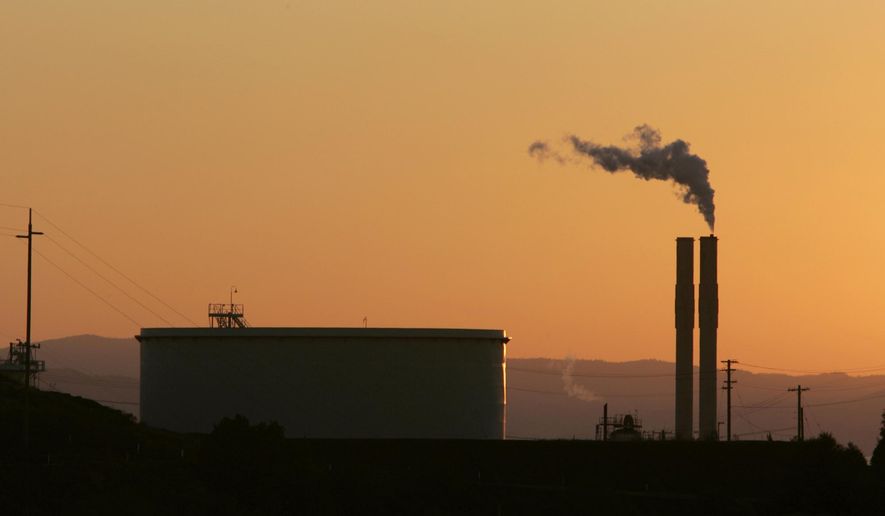The Securities and Exchange Commission unveiled a landmark proposal Monday that would require publicly traded companies to disclose emissions data and risks posed by climate change.
The proposal, which must undergo a 60-day public comment period before the SEC makes it final, would be a first of its kind and mark yet another arena where the Biden administration hopes to combat a warming climate. It also underscores the administration’s concerns about climate change’s potential impacts on the economy.
The idea faced immediate pushback from Republican lawmakers and industry groups. They said the regulators had overstepped their authority and would spread confusion through corporate offices and on Wall Street.
Public companies have been required to disclose detailed financial annual and quarterly reports that include information about items such as the overall financial condition of the company, operating results, management compensation and certain business events, including any acquisition of assets and changes in control of the company.
The SEC voted by 3-1 along party lines to move forward with the proposed climate rule. The commission’s Democratic members, as well as environmental advocates, described it as much-needed transparency that will provide investors and the public with important information about companies’ environmental impact, their risks from climate change and steps they are taking to adapt.
“Our core bargain from the 1930s is that investors get to decide which risks to take as long as public companies provide full and fair disclosure and are truthful in those disclosures,” SEC Chairman Gary Gensler said. “That principle applies equally to our environmental-related disclosures, which date back to the 1970s.”
Though many companies already provide some greenhouse gas emissions data in quarterly financial reports, there is no universal format for how and which data is presented.
Sen. Kevin Cramer, North Dakota Republican, accused the Biden administration of being “hell-bent on regulating fossil fuels out of existence.”
“Congress never passed a new law granting them new authority in this space,” Mr. Cramer, a member of the Senate Environment and Public Works Committee, said in a statement. “Secondly, the new climate reporting requirements are arbitrary and confusing. It only serves to further discourage investment in domestic energy development and prevent American energy independence.”
The American Petroleum Institute, which represents the oil and natural gas industry, was also displeased.
“We are concerned that the Commission’s sweeping proposal could require non-material disclosures and create confusion for investors and capital markets,” said Frank Macchiarola, API’s senior vice president of policy, economics and regulatory affairs.
Democrats, who have been calling for the measure, said it would look out for investors’ interests.
“Investors, pension fund managers and the public need better information about the physical and transition-related risks that climate change poses to hard-earned investments,” said House Select Committee on the Climate Crisis Chairwoman Kathy Castor, Florida Democrat.
As You Sow, a nonprofit focused on promoting environmental and social corporate responsibility through shareholder advocacy, called the SEC’s proposal “truly a watershed moment in responding to investor demand for accurate climate disclosure.”
“Clear and standardized reporting of greenhouse gas emissions is the bedrock of sound investor decision-making,” said Danielle Fugere, As You Sow president and chief counsel. “The new rule provides investors with more robust, complete and comparable disclosure of risk and the emissions data to determine which companies are aligning their business activities with Paris [climate agreement] targets and minimizing transition risks.”
• Ramsey Touchberry can be reached at rtouchberry@washingtontimes.com.




Please read our comment policy before commenting.